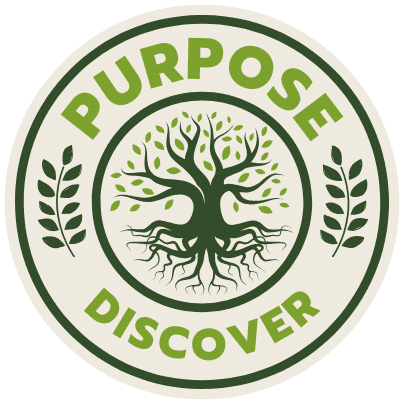You want meaning, not more noise. News flies by. Quizzes slow it down just enough to make it stick. A quick set of questions turns headlines into handles—you can grab them, turn them, own them. That little jolt of “Do I know this?” wakes up curiosity. Curiosity, warmed up daily, points you toward what you care about. Follow that trail and you’re closer to purpose than you were yesterday.
Why News Quizzes Hook the Brain 🧠
Questions flip your brain into active mode. Not passive scrolling. You predict, commit, check. That loop builds recall—the “testing effect” in plain clothes. Miss an item and your brain flags it: remember this next time. Hit the next quiz? You improve. Improvement feels good. Good feelings repeat. Repetition becomes a habit with a heartbeat.
What you feel while quizzing:
Tiny risks, tiny wins—safe pressure
Fast feedback without shame
A clearer map of what you actually like learning
Curiosity, Then Purpose 🌱
Purpose doesn’t fall from the ceiling. It grows where your attention lingers. Quizzes reveal the sticky parts of your attention:
You nail health stories but fade on finance.
You chase climate updates more than celebrity buzz.
You light up on space, policy, local change.
That pattern is a compass. Lean toward the topics that keep pulling you back. Build skill, join conversations, volunteer, maybe even change work lanes. Purpose rarely starts with a grand plan; it starts with “Huh, that’s interesting—again.”
The Quiet Benefits You Actually Notice ✅
Less doomscrolling: You swap endless feeds for short, focused reps.
Sharper conversations: You remember specifics, not vibes.
Confidence: You can explain a story without opening five tabs.
Agency: You pick topics, not algorithms.
Start Simple: Your 10-Minute Routine ⏱️
Minute 0–2: Pick a quiz topic you already like.
Minute 2–6: Answer without overthinking. Commit.
Minute 6–8: Read the explanations on the ones you missed.
Minute 8–10: Save one follow-up article. Not five. One.
Tomorrow, repeat. Track your streak. Keep it friendly, not grim.
Warm-up option: try the bing daily news quiz—fast, current, low friction.
How Online News Quizzes Build Real Knowledge 🧩
Spacing: One round today, one tomorrow, beats a binge.
Retrieval: Dragging the answer from memory cements it.
Interleaving: Mix topics—health, world, tech—to avoid tunnel vision.
Elaboration: After a quiz, explain one answer to a friend or your notes in two sentences. If it sounds foggy, you don’t own it yet.
Make It Personal Without Burning Out 🔥
Choose a “main quest.” Example: energy policy, local education, ocean health.
Add a “wild card.” Keeps you flexible and curious.
Set a cap. Ten minutes, done. Guilt-free.
Celebrate micro-wins. New word learned, concept untangled, myth debunked.
Purpose grows from thousands of these micro-wins, not one dramatic epiphany.
For Quiz Creators: Earn Trust While You Teach 🛡️
If you build quizzes for others, your EEAT signals matter.
Experience: Add short notes on common traps and why they fool people.
Expertise: Link to original sources; show dates on fast-changing topics.
Author transparency: Real bylines, concise bios, contact info.
Accuracy: Update items when facts change; version your questions.
Accessibility: Plain language, readable fonts, mobile-first layouts.
Dignity: Reward effort; don’t mock misses. People come back for respect.
Habit Stacking That Actually Works 🧱
Pair your quiz with coffee. Same mug, same time.
Put the streak counter where you can see it.
Join a friend. Friendly rivalry doubles consistency.
Tie completion to a tiny reward—walk, stretch, music track.
The game is consistency, not intensity.
Red Flags to Avoid 🚩
Endless quizzes with no explanations.
Clickbait answers that teach nothing.
Scoreboards without context (reward learning, not just speed).
Over-optimization that smothers joy. Fun is a feature, not a bug.
A Pocket Playbook for Purpose 🎒
Notice which categories you chase.
Set a 30-day theme.
Build a tiny project around it—newsletter snippet, classroom share, lunch-and-learn, community meetup.
Keep receipts of your progress. Reflection turns activity into meaning.
Quick FAQ ❓
Do online news quizzes actually improve memory?
Yes—short, repeated retrieval strengthens recall. Explanations after each question help the most.
How many quizzes per day is ideal?
One or two rounds is plenty. Depth beats volume.
What if I keep scoring low?
Treat low scores as a map, not a verdict. Read the explanations, retake next week, watch your graph climb.
Can quizzes reduce doomscrolling?
They can. A fixed-length quiz gives you an exit ramp and a sense of completion.
Final Note 🎯
Curiosity is a muscle. Work it gently, daily, with questions that matter to you. The shape of your interest becomes the outline of your purpose. Keep showing up. The path gets clearer.
Author
-
Sophia Everly is a contributing writer at What Is Your Purpose, where she shares insights on intentional living, personal growth, and the search for meaning. Her work explores how purpose evolves across different life stages, blending reflection with practical wisdom that helps readers align their daily choices with what matters most. Sophia’s writing invites readers to slow down, ask deeper questions, and discover clarity in the journey toward a more purposeful life.
View all posts

